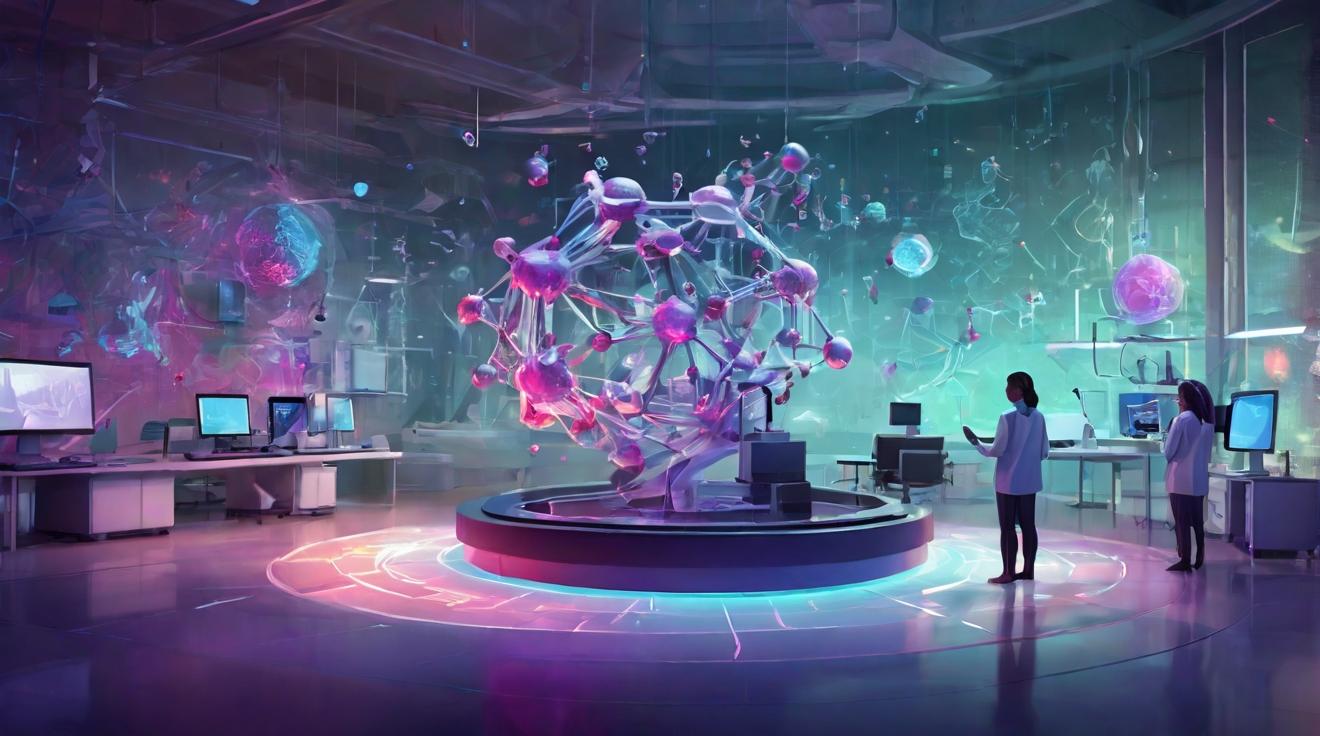Insilico Medicine and University of Toronto Collaborate to Target "Undruggable" Cancer Genes using AI-Designed Molecules
AI is revolutionizing the field of drug discovery, particularly in targeting "undruggable" cancer genes.

Insilico Medicine, a leader in artificial intelligence (AI)-driven drug discovery, has joined forces with biochemist and molecular geneticist Igor Stagljar at the University of Toronto in an innovative collaboration aimed at tackling the challenge of targeting "undruggable" cancer genes. These genes, including KRAS, which is renowned as the most frequently mutated cancer-causing gene across all cancer types, pose a major obstacle in drug design due to their smooth surfaces that lack binding pockets for small molecule drugs to attach to.
Kyle Tretina, Alliance Manager of AI Platforms at Insilico Medicine, explains the role of AI in drug discovery. Insilico Medicine has been utilizing advanced machine learning techniques, such as deep generative models and reinforcement learning, to leverage the power of AI in handling the vast amount of data associated with drug discovery and development. Since around 2010, AI has increasingly integrated into this field, surpassing human capabilities.
Insilico Medicine has adopted a unique approach that combines the development of AI platforms with its own therapeutic programs. This approach gives the company a competitive edge by utilizing its pipeline to validate its software. Insilico Medicine's Pharma AI suite consists of three platforms: Biology 42, which identifies drug targets; Chemistry 42, which creates effective small molecules; and Medicine 42, which helps with clinical trial design and prediction. This comprehensive approach allows Insilico Medicine to cover the entire drug development process, from target identification to the trial phase.
The selection of a drug target is a crucial step in the process, requiring the integration of large amounts of multi-omics data and text data to understand the molecular changes associated with diseases. Once the target is identified, Insilico employs AI to design small molecules that are then validated through laboratory tests.
The challenge of targeting "undruggable" genes is overcome by AI's ability to envision new molecular structures that traditional methods may not predict. AI accelerates the search for viable drug candidates for targets previously considered "undruggable" due to structural complexities or their involvement in vital biological processes.
Despite these advancements, challenges such as target selectivity, disease heterogeneity, and potential physical barriers still exist. However, AI's role in drug discovery is constantly evolving, with the potential to expedite the process and reduce costs, although clinical trial processes and the possibility of failure still loom. The focus on selecting the right targets and optimizing trial processes gives hope for future advancements in the efficiency and success rate of drug discovery.
For those interested in delving into the impact of AI in drug discovery further, numerous resources are available that explore the advancements and leading companies in this transformative approach.
Analyst comment
Positive news: Artificial intelligence (AI) is contributing significantly to drug discovery by targeting “undruggable” cancer targets. A collaboration between Insilico Medicine and Igor Stagljar aims to use AI-designed molecules to target difficult areas including KRAS. AI is outperforming humans in handling vast data associated with drug discovery. Insilico Medicine’s Pharma AI suite covers the entire drug development process. AI’s capacity to imagine new molecular structures is addressing the challenge of undruggability. AI has the potential to make the process faster and more cost-effective, improving efficiency and success rate.













